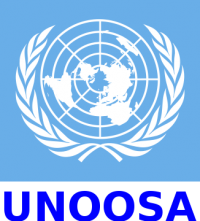›United Nations/Moldova/United States of America Workshop on the Applications of Global Navigation Satellite Systems
The United Nations/Moldova/ United States of America workshop on the applications of GNSS will be held in Chisinau, from 17 to 21 May 2010. It will address, inter alia, the space technology applications such as: remote sensing, precision agriculture, aviation, transport and communications, and elearning.
The workshop will aim at initiating pilot projects and strengthening the networking in the region. This workshop will also address the areas of natural resources management and environmental monitoring by applying GNSS technologies to thematic mapping, forest management and water resources management. In the area of precision agriculture, the decision-making process could be significantly improved with the use of geospatial technologies, which allow for timely tactical or strategic decision-making at various levels. The use of GNSS could benefit various areas of the agricultural sector, ranging from basic rural cadastre and surveying to advanced precision agriculture. Agro-climatic and ecologic-economical zonings,crop inventory, monitoring and forecasting are only a few examples of agricultural activities where positioning is of paramount importance.
In the area of climate change, different factors and mechanisms drive land use and land cover transformation. In many cases, climate, technology and economics appear to be determinants of land-use change at different spatial and temporal scales. At the same time, land conversion is an adaptive feedback mechanism that farmers use to smooth the impact of climate variability, especially in extremely dry and humid periods. Satellites have for several years been an indispensable resource in global observation of the Earth and weather systems. They bring undeniable added value to global climate models but much remains to be done in developing finer-scale models capable of use in a regional or national setting. Space-based systems such as GNSS has demonstrated its ability to make precise and detailed observations of key meteorological parameters, whose measurement stability, consistency and accuracy should make it possible to quantify longterm climate change trends.
In the area of transport domain, a number of studies have already shown that civil aviation will significantly benefit from the use of GNSS. These benefits include: improved navigation coverage in areas currently lacking in conventional aids, accurate and reliable information about aircraft positions and routes enables safe and efficient management of air traffic, and thereby safety on airport approaches. Road transport applications can automatically revise a route to account for traffic congestion, changes in weather or road works. Similarly, at sea GNSS technologies can provide efficient route planning, collision avoidance and increased efficiency in search and rescue situations. For rail transport, GNSS offers enhanced cargo monitoring and assists track surveying.
Track this event on your Apple calendar














 Moldova
Moldova